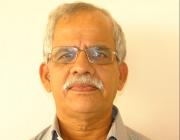Course Plan
|
Ser. No. |
Module |
Portion |
|
1. |
General |
Motivational. Advantages of being in RSET; advantages of taking ‘Instrumentation’, opportunities. What do we do towards placement. |
|
2. |
General |
PPT: self introduction, employability skills, how we impart these, discipline in detail, need for change of learning method. |
|
3. |
General |
How to attend classes, being prepared – writing notes – asking questions. |
|
4. |
Module 1 |
Meaning of sustainability, course objectives, expected outcomes, list of references, class methodology, importance of assignments and test papers, meaning of sustainability, development, sustainable development, |
|
5 |
The fundamental concept of sustainability and the three pillars of sustainable development.
|
|
|
6 |
QP structure and explanation, the three domains in detail. |
|
|
7 |
Challenges for sustainable development
|
|
|
8 |
Challenges for sustainable development (cont.)
|
|
|
9 |
GHGs and CDM |
|
|
10 |
Multilateral environmental agreements and Protocols |
|
|
11 |
Nexus between technology and SD |
|
|
12 |
Module2 |
Air pollution, Effects of air pollution |
|
13 |
Water Pollution |
|
|
14 |
Sustainable waste water treatment, Sources of solid wastes, Impacts of solid wastes |
|
|
15 |
Zero waste concept, 3R approach |
|
|
16 |
Module 1 |
Environmental legislations in India: Water act , Air act |
|
17 |
Module 2 |
Ozone layer depletion |
|
18 |
Global environmental issues |
|
|
19 |
Regional and local environmental issues. Carbon credits and carbon trading, carbon footprint. |
|
|
20 |
Carbon credits and carbon trading, carbon footprint. |
|
|
21 |
Module 3 |
Introduce Environmental management standards - ISO 14000 series |
|
22 |
Life Cycle Analysis (LCA) – Scope and goal, |
|
|
23 |
Biomimicking |
|
|
24 |
Environmental Impact Assessment (EIA) – Procedures of EIA in India. |
|
|
25 |
Module 4 |
Basic concepts of sustainable habitat, Green buildings, |
|
26 |
Green materials for building construction, material selection for sustainable design |
|
|
27 |
Green building certification |
|
|
28 |
Methods for increasing energy efficiency of buildings, |
|
|
29 |
Sustainable cities, Sustainable transport. |
|
|
30 |
Simple activities
|
|
|
31 |
||
|
|
|
|
|
|
|
|
|
32 |
Module 5 |
Energy sources: Basic concepts – Conventional and nonconventional |
|
33 |
Solar energy, Fuel cells, Wind energy |
|
|
34 |
Small hydro plants, bio-fuels |
|
|
35 |
Energy derived from oceans, Geothermal energy |
|
|
36 |
Presentations by student groups |
|
|
37 |
||
|
38 |
Module 6 |
Green engineering, Sustainable urbanization |
|
39 |
|
Industrialization and poverty reduction; Social and technological change |
|
40 |
|
Industrial processes: Material selection, pollution prevention |
|
41 |
|
Industrial ecology, Industrial symbiosis |
